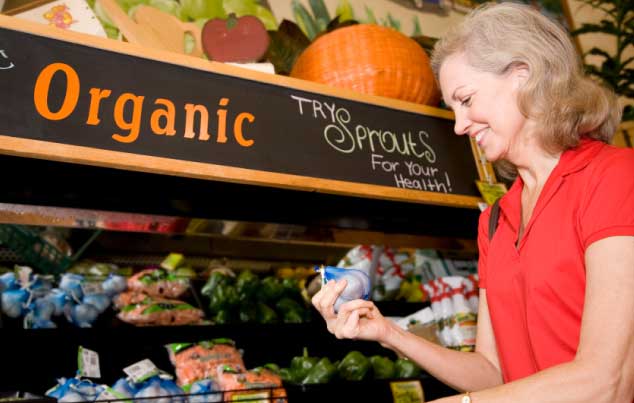One of most heated debates about food these days is whether or not organic food is more nutritious than conventionally grown. No matter what side of the fence you’re on, it’s easy to find a study that will support your perspective.
In my mind, there are some basic, common-sense reasons why we should eat as many organic foods as our budgets will allow. Here are just two of them:
- Fertile soil = nutritious food. It stands to reason that when you add nutrients to your garden plots before planting each season, those nutrients will come back to you at harvest time. You can taste them in the deep, vibrant flavors of your carrots, beets, and sweet potatoes. It just makes sense—the more fertile the soil, the more nutritious the food.
- Fewer pesticides = healthier bodies. Pesticides are toxic chemicals, and I double-dog dare you to find a study on the nutritional value of toxic chemicals, be they natural or synthetic. Our bodies don’t know what to do with these foreign substances, which certainly don’t offer up any of the vitamins and minerals that keep us at the top of our game.
If you need more science-based reasons to make your decision, you don’t have to look far. In the SRP Historical Archives, you’ll find decades of research that support the importance of nutrient dense foods. You’ll also find this warning from Dr. Royal Lee about the dangers of malnutrition. That was published more than 80 years ago, but his message couldn’t be more relevant today. Malnutrition is the cause of most of today’s diseases.
The conclusion seems pretty logical to me. If the soil we grow our food in lacks nutrients, so will the food it produces. I plan to further my self-health education on this topic by reading Empty Harvest: Understanding the Link Between Our Food, Our Immunity, and Our Planet by Dr. Bernard Jensen and Mark Anderson. The food choices we make are very personal, but they determine the future of more than just our individual health. We owe it to ourselves to understand all aspects of it.
Whether the studies say organic food is more nutritious or not, I plan to keep including organic options on my family’s menu as much as possible. The educated consumers among us can often rely on our common sense to make decisions about food rather than rely on the latest studies out there. These are often funded by organizations with a vested interest in the outcome—but that’s a whole other post.
If you’ve been thinking about a shift to more organic foods, be sure to educate yourself on what those food labels really mean. You can also take some easy steps to simplify the process with a few portable shopping tools.
What are some common sense reasons you choose organic foods?
Photo from iStock/Steve Debenport



